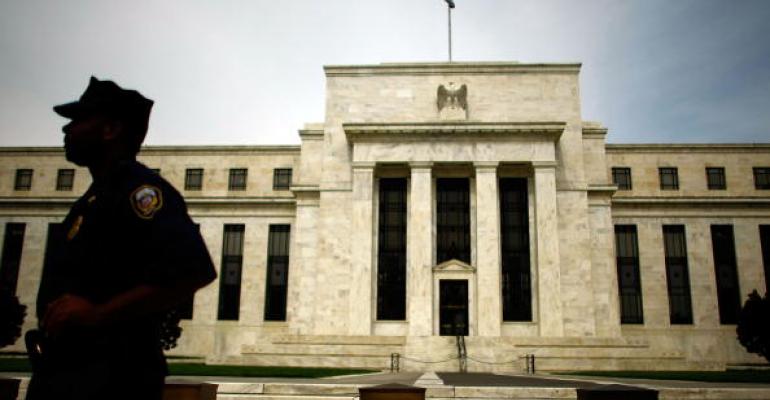(Bloomberg) -- Federal Reserve Bank of Cleveland President Loretta Mester said the U.S. central bank is too focused on limiting damage to financial markets and the U.S. economy to be concerned that its actions will encourage excessive risk-taking by investors.
“Yes, we are moving into unprecedented territory, but remember we’re trying to lend to firms that through no fault of their own were impacted by the virus,” Mester said Friday in an interview on Bloomberg Television.
The Fed has announced nine emergency-lending programs with the capacity to lend trillions of dollars aimed at bridging the U.S. economy through the period of economic paralysis induced by the coronavirus pandemic. The lending efforts will see the Fed buying corporate bonds for the first time, including some that have been downgraded below investment grade.
Risky Behavior
Before the crisis, the Fed had warned about the high level of indebtedness at U.S. companies. Critics have said that in buying so-called junk debt the Fed will only encourage future risky lending.
“I don’t think we can be that concerned about those kinds of moral hazards,” Mester said. “This is a hugely and negatively impactful shock, and we have to do all we can to make sure we’re not doing permanent damage to the underlying fundamentals of the economy.”
Asked also about the Fed’s plans to purchase exchange-traded funds that invest in junk bonds, Mester said that step was aimed more at keeping markets functioning, as opposed to delivering aid directly to troubled companies.
Mester said recent economic data have been “very ugly” but “not unexpected given what we’ve decided to do in the best interests of public health.”
She said the post-virus recovery will be gradual as certain sectors and certain geographical regions may return to normal faster than others.
Economic Pain
Also Friday, New York Fed President John Williams expressed caution, saying the U.S. economy will struggle to return to normal even after restrictions are lifted.
“We have a lot of economic pain that we’re experiencing today, and that’s likely to continue for some time,” Williams said in an interview on CNBC television.
“I don’t see the economy being back to full strength by the end of the year,” Williams said. “It’s going to take longer to get us back to where we want to be.”
The U.S. has seen mass layoffs in recent weeks as state and local leaders have ordered businesses to close in a bid to stop the spread of the virus. According to a Bloomberg survey of private-sector forecasters, the unemployment rate may rise to almost 13% in the second quarter, and linger above 8% through the end of the year -- though worse scenarios are becoming more realistic.
“One of the things that we’re hearing a lot from business contacts, leaders in the community, are concerns that, even as the pandemic passes -- even as the restrictions are relaxed gradually, over time -- people may take quite a while before they’re willing to get back on airplanes, or trains, or go to the theater, or go to concerts,” Williams said.





